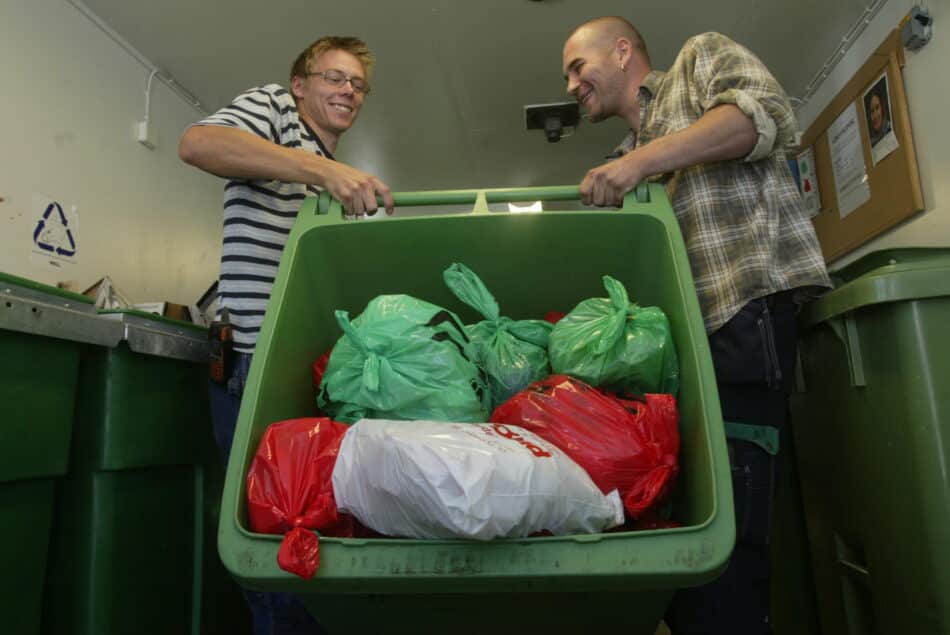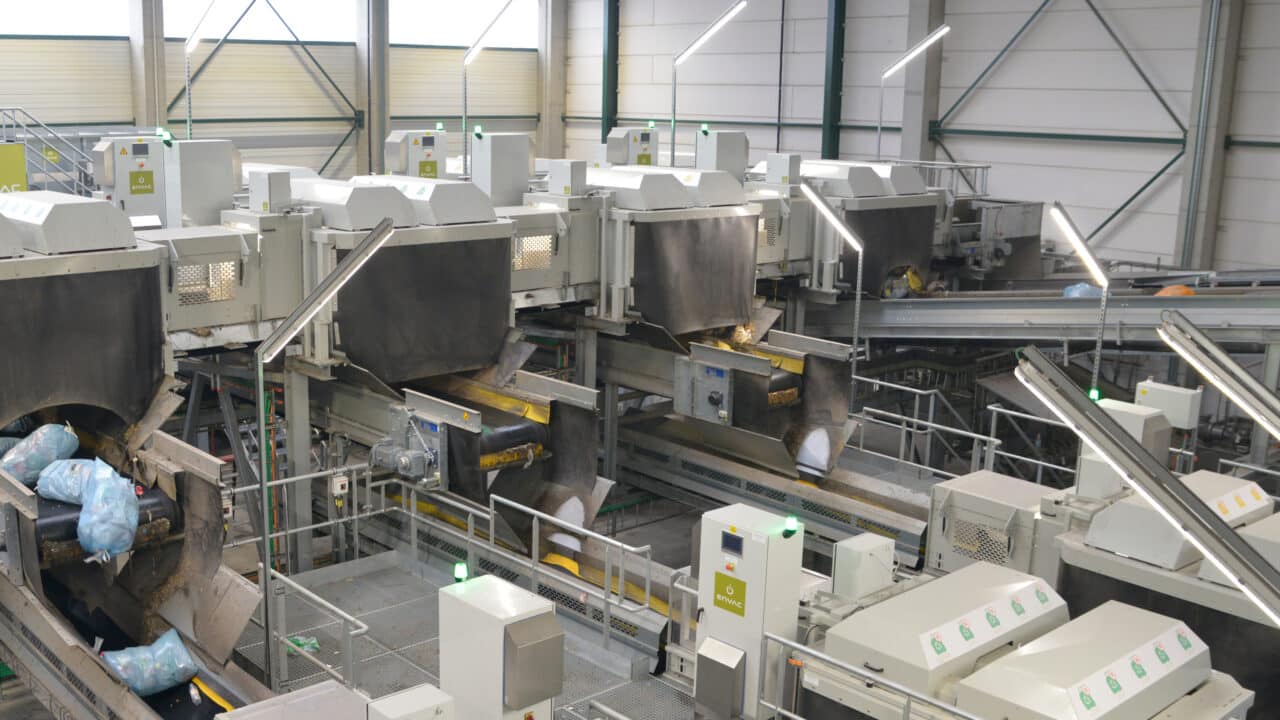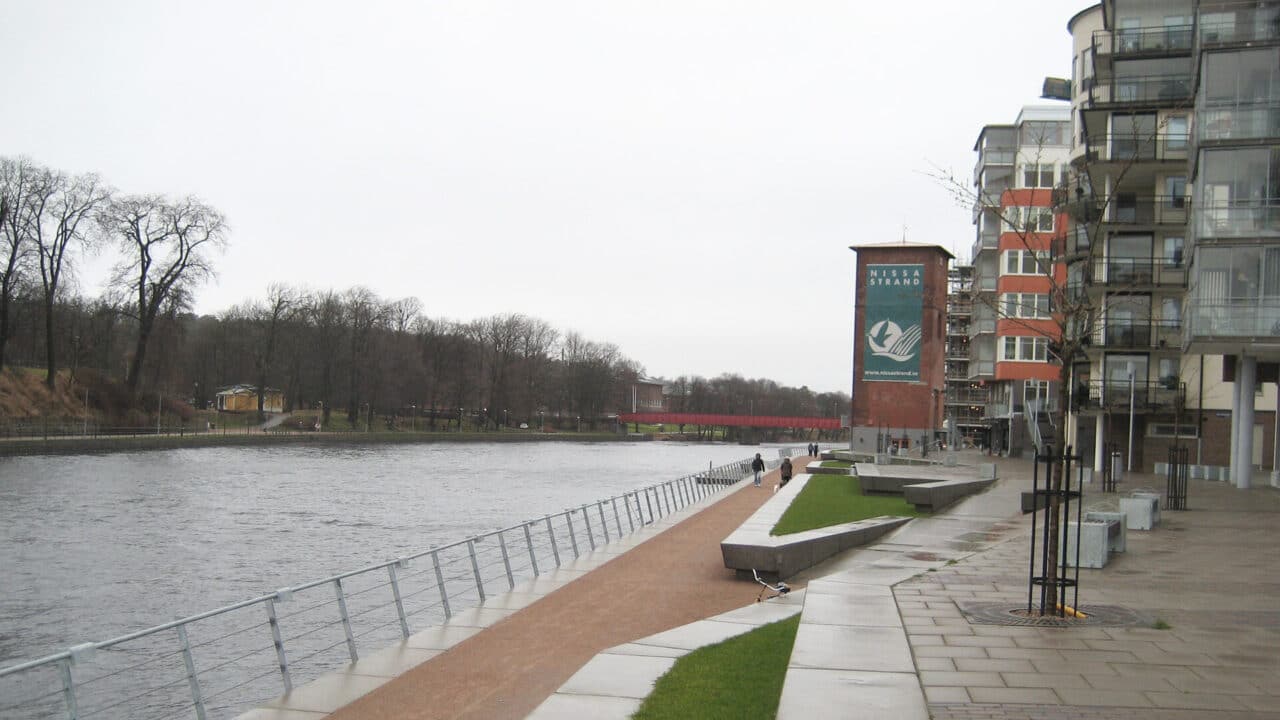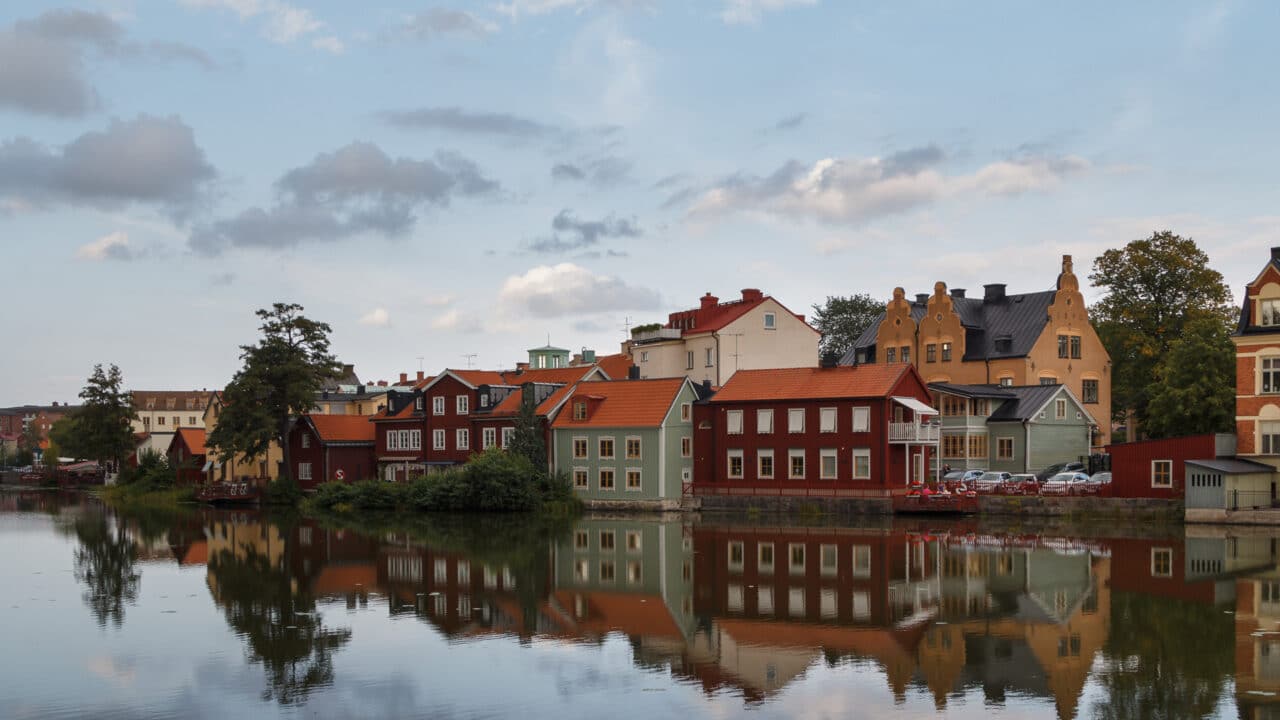Capacity
48.000 tons/year
The municipal company Tekniska Verken AB owns and operates a biogas facility, suppling biogas to public buses and cars in the county of Östergötland, Sweden. The target is to be a fossil free region by 2030. The transformation to fossil free was the main political factor for the Municipality of Linköping to introduce Envac’s optical sorting system to sort out the food waste from the residual waste of the households.
48.000 tons/year
Food and residual waste
325.000

A reason for choosing Envac’s optical sorting system was that it is a proven technology, can easily be introduced to the entire municipality, and it adds no extra cost for the households. The automated system implies a lower workload for the staff.
The sorting plant in Linköping handles two fractions, residual waste and food waste. It is built adjacent to the district heating plant where the residual fraction is incinerated and converted to heat and energy.
The food waste is transported to a nearby pre-treatment plant, where it is processed to biogas and biofertiliser.

After the sorting system in Linköping was launched, another 12 municipalities have joined and treat their waste at Tekniska Verken, without need for further extension of the plant, which proves that the system is flexible and thus cost efficient.

Sorting Biostoom Beringen, Belgium
The Limburg Optimo Sorting Facility was launched in 2022 and services 32 municipalities, enabling smarter sorting for more than 300 000 households. The facility sorts 5 different fractions: food waste, garden waste, textile waste, residual waste and plastic/metal packaging. The facility is built to be flexible and has the option to add 2 more fractions in the future.

Sorting Halmstad, Sweden
The plant is owned and operated by HEM (Halmstad Energi och Miljö AB). It’s built for two fractions, food and rest, with the option to easily extend it to six fractions. The brand new building also contains a pre-treatment facility for the sorted food waste, which becomes biofuel.

Sorting Eskilstuna, Sweden
Eskilstuna was early with household waste recycling. With the higher demands of The National Goals the municipality introduced optical sorting. Within only a few months the target of 50% sorted waste was accomplished.